news
‘Obasanjo Should be Blamed on Rethinking Western Liberal Democracy in Nigeria. From 1999 to 2007, he even made attempts to modify the constitution’ Onanuga fumes
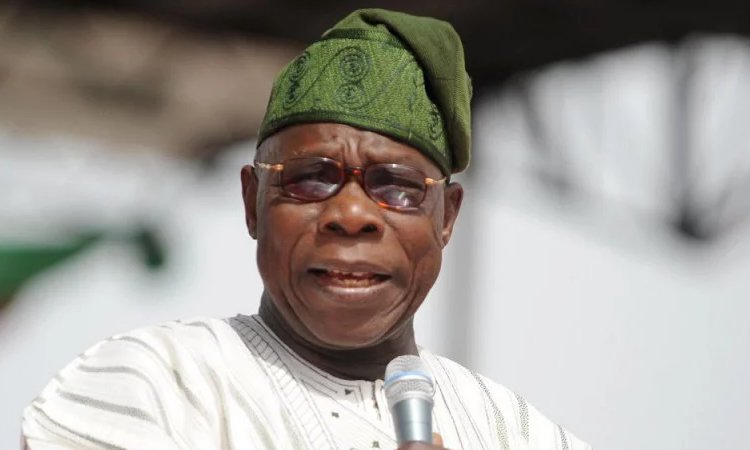
 The Presidency, on Monday, blamed former President Olusegun Obasanjo for the current state of Nigeria’s democracy.
The Presidency, on Monday, blamed former President Olusegun Obasanjo for the current state of Nigeria’s democracy.
The Special Adviser to the President on Information and Strategy, Bayo Onanuga, who spoke to the Newsthumb noted that the democracy the country currently practises dates back to direct inputs by Obasanjo when he led the country’s first as military Head of State from 1976 – 1979 and as civilian President from 1999 – 2007.
“Obasanjo ought to know that he brought this thing into Nigeria. He was the one who made us adopt it in 1979. He must have seen it as expensive and unsuitable when he governed us for eight years and even wanted an extension for another four years.
“So, the way he is sounding, it is like the man is getting wiser after leaving office,” Onanuga said, reacting to Obasanjo’s post-presidential stance.
The Presidency’s response followed comments made by Obasanjo at the high-level consultation on Rethinking Western Liberal Democracy in Africa held at Green Resort Legacy, Olusegun Obasanjo Presidential Library, Abeokuta.
Obasanjo had criticised Western democracy, suggesting it had not delivered good governance and development in Africa.
He called for a reexamination and moderation of democracy to better suit African nations, citing the Western model’s disregard for African history and complexities.
Obasanjo proposed an “Afro democracy” tailored to the continent’s unique needs.
The ex-president said the snag with the liberal democracy was that it was not home-grown and did not take into account African history and multicultural complexities, among other peculiarities.
Picking holes in the Western liberal democracy, Obasanjo described it as a “government of a few people over all the people or population and these few people are representatives of only some of the people and not fully representatives of all the people. Invariably, the majority of the people are wittingly or unwittingly kept out.”
According to him, African countries have no business operating a system of government in which they have no hands in its “definition and design.”
Obasanjo said, “The weakness and failure of liberal democracy as it is practised stem from its history, content and context and practice. Once you move from all the people to a representative of the people, you start to encounter troubles and problems.
“For those who define it as the rule of the majority, should the minority be ignored, neglected and excluded? In short, we have a system of government in which we have no hands to define and design and we continue with it even when we know that it is not working for us.
“Those who brought it to us are now questioning the rightness of their invention, its deliverability and its relevance today without reform. The essence of any system of government is the welfare and well-being of the people, all the people.”
He argued that Nigerians must “interrogate the performance of democracy in the West where it originated from and with us the inheritors of what we are left with by our colonial powers.”
But the Presidency blamed the former leader for a poorly copied model during his tenure as Head of State and, later, President.
It criticised Obasanjo for not advocating a better system despite his current views saying, “If he believes in what he is saying now, he ought to be an advocate of the need to go back to the parliamentary system.”
Onanuga added, “We were practicing the parliamentary democracy the British left for us. Then, the military struck in 1966. And when we were going to return to democracy, instead of going back to what we were practicing before, parliamentary democracy, which was not expensive, it was this same Obasanjo who accepted the recommendation of the constitutional assembly at that time that recommended this American-style democracy.”
The Presidency criticised Obasanjo’s implementation of the presidential system, saying, “Obasanjo also knew that he copied this presidential system very wrongly. He copied the form and structure. But he didn’t copy the spirit of it.”
“Something that should have been under him in 1999 to 2007, he even made attempts to modify the constitution,” Onanuga remarked.
news
Update : FG confirms continuation of crude, refined product sales in Naira initiative, Says Wale Edu

 The Federal Government has confirmed the crude and refined product sales in Naira initiative remains a standing national policy and will continue indefinitely.
The Federal Government has confirmed the crude and refined product sales in Naira initiative remains a standing national policy and will continue indefinitely.
However, the policy will stay in place as long as it serves the public interest and supports Nigeria’s broader economic goals.
This assurance was contained in the official X (formerly Twitter) handle of the Federal Ministry of Finance on Wednesday morning amid growing inquiries on the status of the policy.
The Ministry stated the initiative, first approved by the Federal Executive Council (FEC), is a long-term strategic directive and not a short-term or provisional measure.
According to the Ministry, stakeholders have reconvened to reiterate their full support and ongoing commitment to ensuring the successful implementation of the initiative.
The policy, which mandates the transaction of crude oil and refined petroleum products in Naira, is aimed at strengthening the country’s economic sovereignty, enhancing local refining capacity, and stabilizing the foreign exchange market by reducing the demand for dollars in domestic petroleum transactions.
The Ministry explained that this policy is structured to foster energy security and encourage investment in domestic refining infrastructure.
“The Crude and Refined Product Sales in Naira initiative is not a temporary or time-bound intervention, but a key policy directive designed to support sustainable local refining, bolster energy security, and reduce reliance on foreign exchange in the domestic petroleum market,” the statement reads.
While acknowledging that the transition involves complexities, the government admitted that existing challenges are being systematically addressed.
“As with any major policy shift, the Committee acknowledges that implementation challenges may arise from time to time. However, such issues are being actively addressed through coordinated efforts among all parties,” the Ministry said.
To assess the progress made and address lingering implementation issues, the Technical Sub-Committee on the Crude and Refined Product Sales in Naira initiative held a review meeting on Tuesday. The gathering brought together key figures involved in the execution of the policy.
Among the attendees were the Minister of Finance and Coordinating Minister of the Economy, Mr. Wale Edun, who chairs the Implementation Committee; and the Executive Chairman of the Federal Inland Revenue Service (FIRS), Mr. Zacch Adedeji, who heads the Technical Sub-Committee.
Also present were the Chief Financial Officer of NNPC Limited, Mr. Dapo Segun; the Coordinator of NNPC Refineries; Management of NNPC Trading; representatives from the Dangote Petroleum Refinery and Petrochemicals; and senior officials from the Nigerian Upstream Petroleum Regulatory Commission (NUPRC), the Nigerian Midstream and Downstream Petroleum Regulatory Authority (NMDPRA), the Central Bank of Nigeria (CBN), and the Nigerian Ports Authority (NPA). A representative from Afreximbank and the Secretary of the Committee, Hauwa Ibrahim, also attended.
This policy, which aligns with the government’s broader economic reform agenda, is expected to support local content development, ease pressure on Nigeria’s foreign reserves, and provide a more predictable pricing structure for refined petroleum products in the domestic market.
The presence of major players from both the public and private sectors at the meeting shows the scale of collaboration required to sustain the policy. It also reflects the growing confidence in Nigeria’s shift toward economic policies that prioritize local capacity and currency resilience.
news
Breaking : TInubu appoints Bashir Ojulari as new CEO group of NNPC and GMD mele kyari get sacked, Says Onanuga
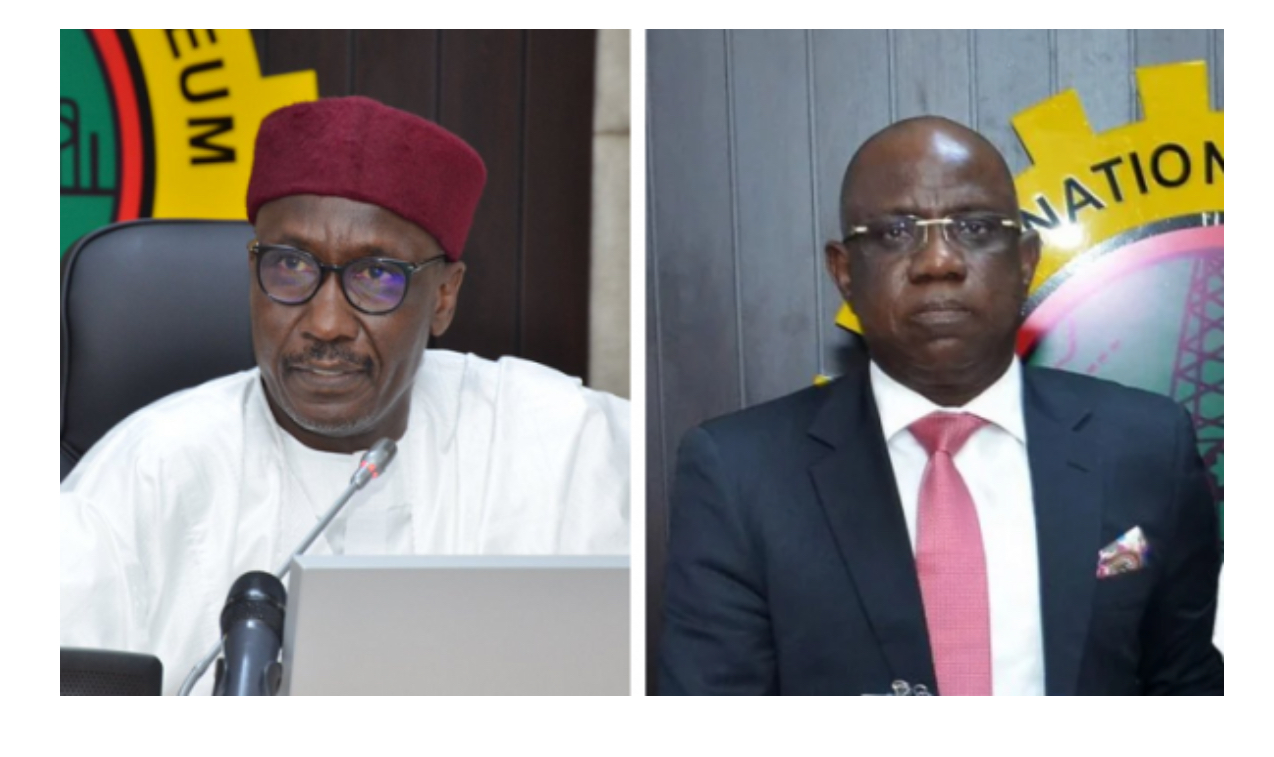
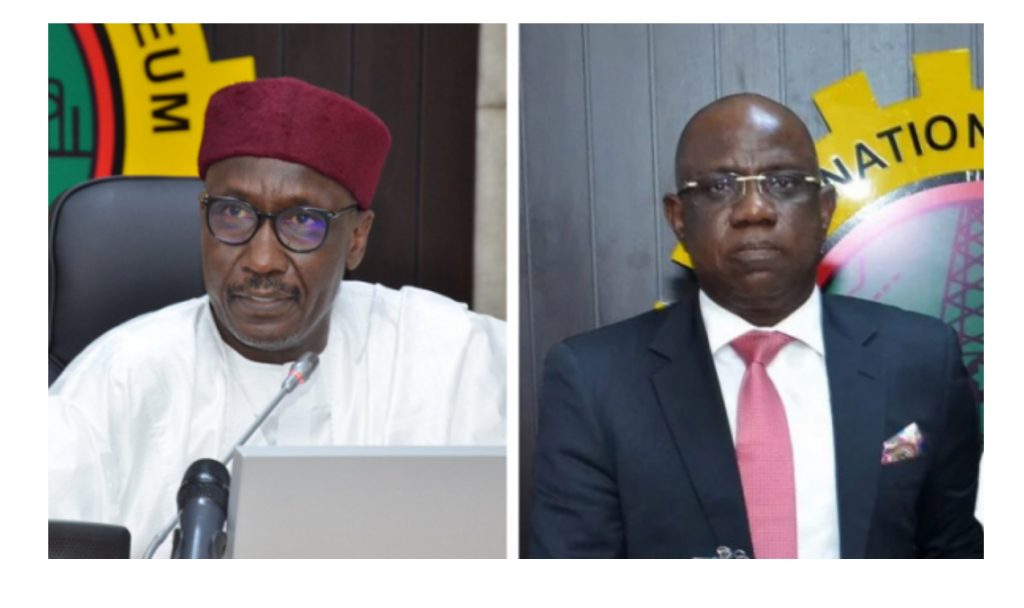 President Bola Tinubu has sacked the board of the Nigerian National Petroleum Company (NNPC) including its Group Chief Executive Officer, Mele Kyari and board chairman Pius Akinyelure.
President Bola Tinubu has sacked the board of the Nigerian National Petroleum Company (NNPC) including its Group Chief Executive Officer, Mele Kyari and board chairman Pius Akinyelure.
The decision, effective April 2, 2025, was announced in a statement by presidential spokesperson Bayo Onanuga.
President Tinubu cited the need for enhanced operational efficiency, restored investor confidence, and a more commercially viable NNPC as the driving forces behind the decision.
Invoking his powers under Section 59(2) of the Petroleum Industry Act (PIA) 2021, he reconstituted the board with new leadership aimed at repositioning NNPC Limited for greater productivity and alignment with global best practices.
Kyari was first appointed NNPC chief by former President Muhammadu Buhari but was reappointed in 2023 by President Tinubu.
As part of the overhaul, Bayo Ojulari takes over from Kyari as the new group CEO, while Ahmadu Musa Kida has been appointed as NNPC’s new non-executive chairman, replacing Pius Akinyelure. Also, Adedapo Segun has been confirmed as the company’s chief financial officer (CFO).
In line with the PIA, the president also appointed six non-executive directors from each geopolitical zone.
They include Bello Rabiu representing the north-west, Yusuf Usman from the north-east, and Babs Omotowa, a former managing director of the Nigerian Liquefied Natural Gas (NLNG), for the north-central.
Others are Austin Avuru for the south-south, David Ige for the south-west, and Henry Obih for the south-east.
Meanwhile, Lydia Shehu Jafiya, the permanent secretary of the federal ministry of finance, and Aminu Said Ahmed of the ministry of petroleum resources will represent their respective ministries on the new board.
“This restructuring is aimed at repositioning NNPC Limited for greater productivity and efficiency in line with global best practices. We are taking bold steps to transform the company into a more commercially driven and transparent entity,” the statement reads.
The changes take effect immediately, and the new board has been handed a strategic action plan, which includes a “review of NNPC-operated and Joint Venture Assets to ensure alignment with value maximisation objectives”.
news
Tinubu commended Nandap for her leadership, extends Comptroller-General tenure till 2026, says Onanuga
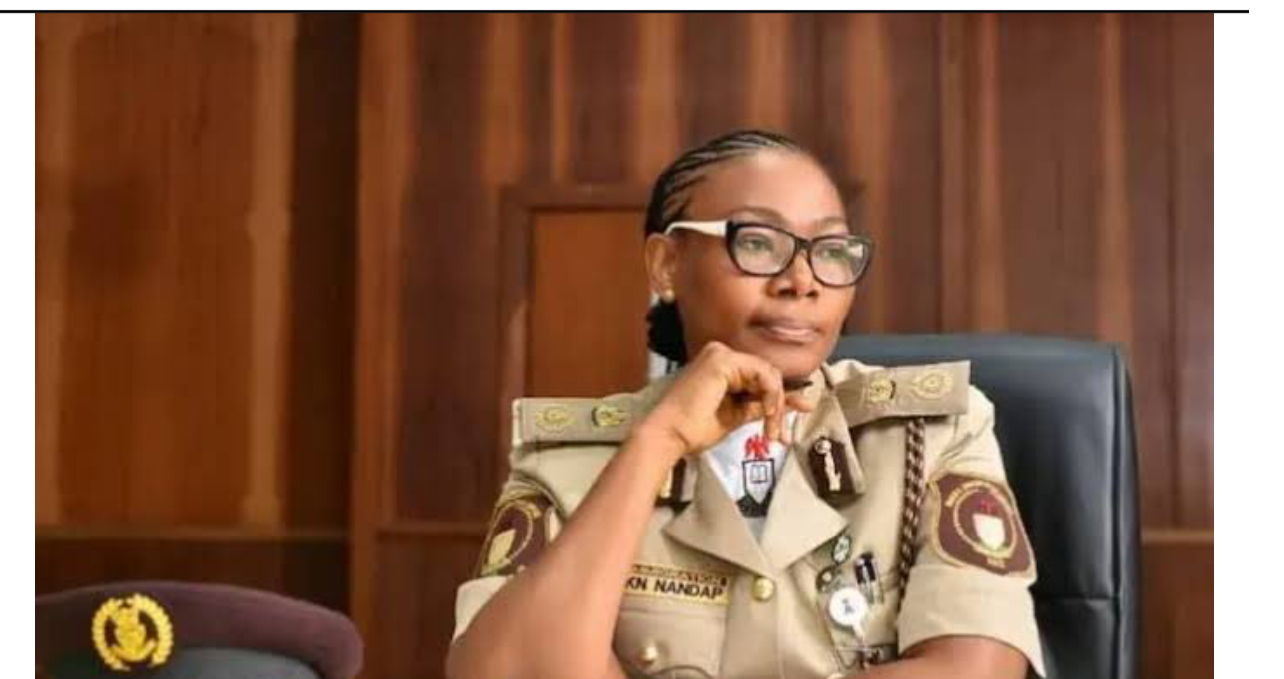
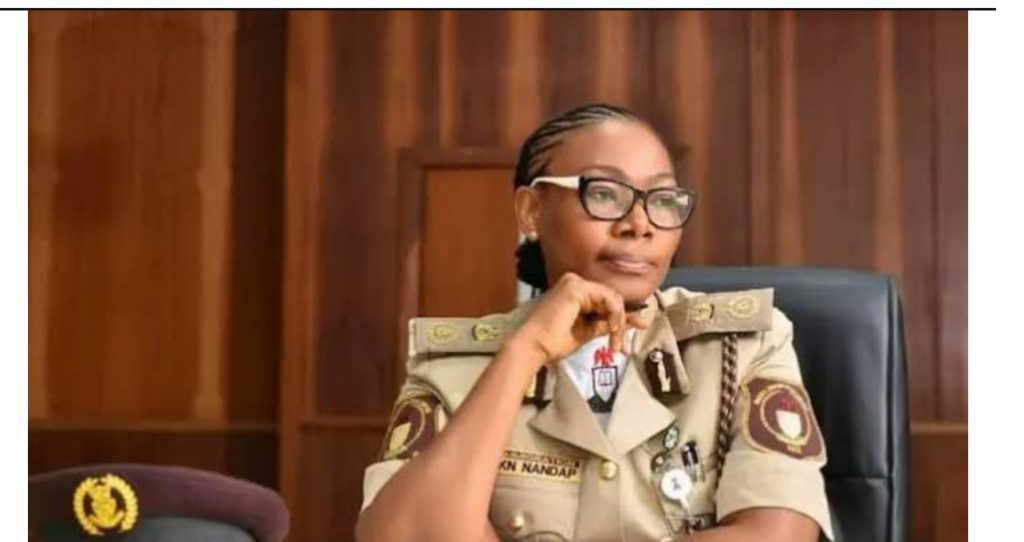 President Bola Tinubu has approved the extension of the tenure of the Comptroller-General of the Nigeria Immigration Service, Kemi Nandap, until December 31, 2026.
President Bola Tinubu has approved the extension of the tenure of the Comptroller-General of the Nigeria Immigration Service, Kemi Nandap, until December 31, 2026.
Nandap, who joined the NIS on October 9, 1989, was appointed as Comptroller-General on March 1, 2024, with an initial tenure set to end on August 31, 2025.
A statement by the president’s Special Adviser on Information and Strategy, Bayo Onanuga, on Monday, said for her leadership, noting improvements in border management, immigration modernisation, and national security under her watch.
“Under her leadership, the Nigeria Immigration Service has witnessed significant advancements in its core mandate, with notable improvements in border management, modernisation of immigration processes and national security measures.
“President Tinubu commended the Comptroller-General for her exemplary leadership and urged her to continue dedicating herself to the Service’s strategic priorities, which align with his administration’s Renewed Hope Agenda,” the statement read.
He also reaffirmed his commitment to supporting the NIS in safeguarding Nigeria’s borders and ensuring safe and legal migration.
-

 news4 years ago
news4 years agoUPDATE: #ENDSARS: CCTV footage of Lekki shootings intact – Says Sanwo – Olu
-

 news1 year ago
news1 year agoEnvironmental Pollutions : OGONI COMMUNITY CRIES OUT, THREATENS TO SHUT DOWN FIRSTBANK,SHELL OIL COMPANY OPERATIONS FOR NOT PAYING COURT AWARD
-
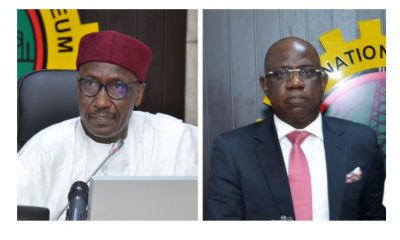
 news1 week ago
news1 week agoBreaking : TInubu appoints Bashir Ojulari as new CEO group of NNPC and GMD mele kyari get sacked, Says Onanuga
-
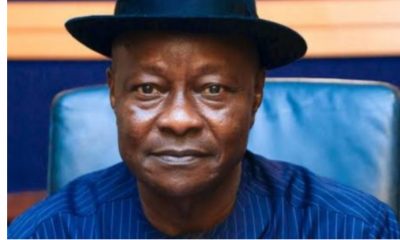
 news2 weeks ago
news2 weeks agoUpdate : Fubara ordered bombing of Rivers Assembly, I am not under duress I resigned, Says ex-Rivers HoS Nwaeke
-
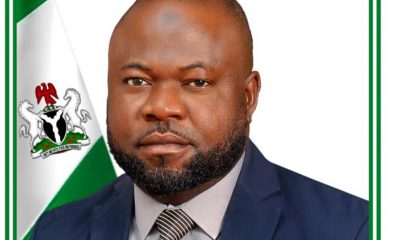
 interview1 week ago
interview1 week agoNIGERIA MECHANIZED AGRO EXTENSION SERVICE PROJECT, A STRATEGIC MOVE TO ALLEVIATE POVERTY – DR. AMINU ABDULKADIR
-

 news2 weeks ago
news2 weeks agoTinubu commended Nandap for her leadership, extends Comptroller-General tenure till 2026, says Onanuga
-

 brand2 weeks ago
brand2 weeks agoGTCO Plc Releases 2024 Full Year Audited Results …Pays Shareholders Record Dividend of N8.03k for 2024 Financial Year
-
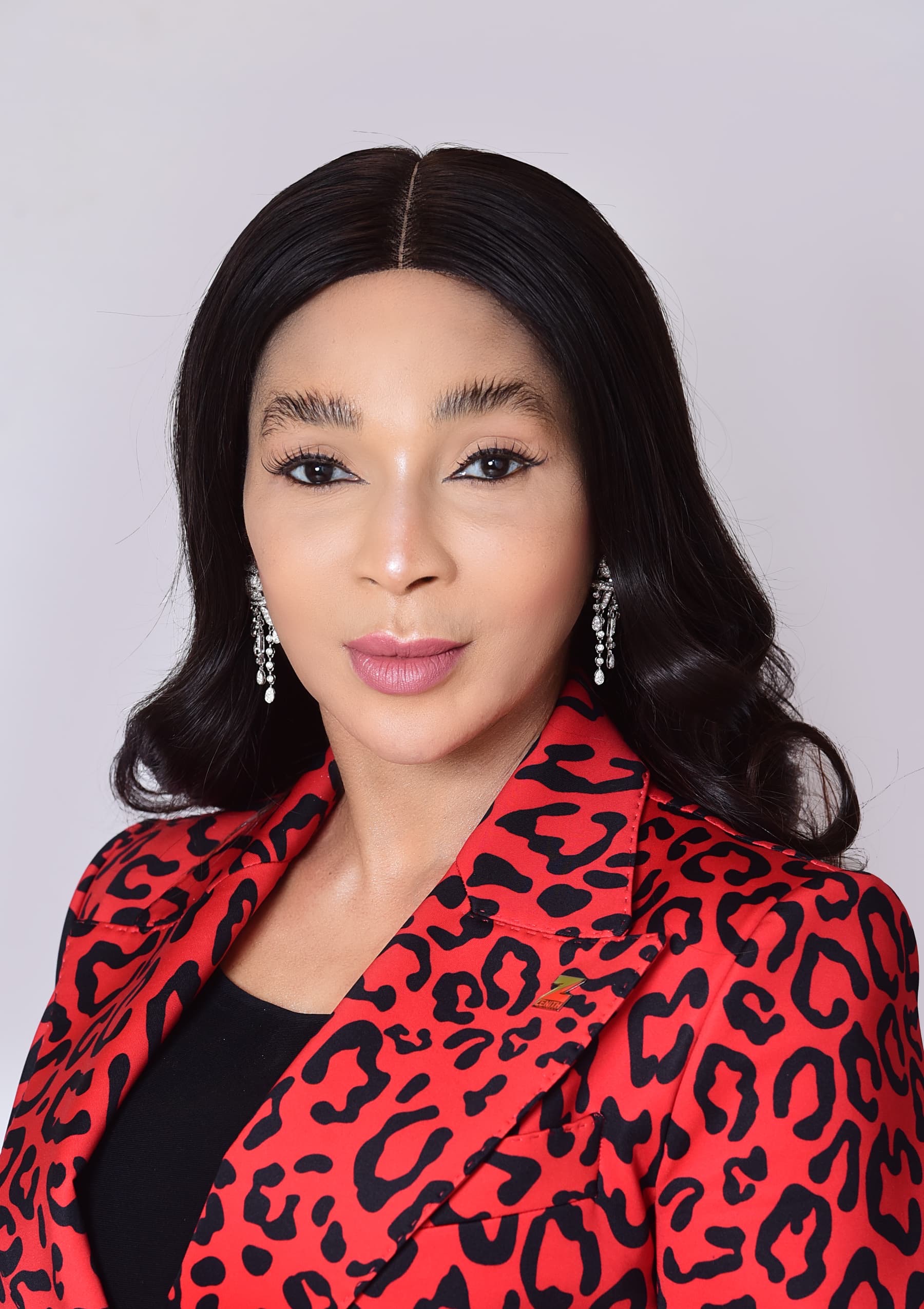
 brand2 weeks ago
brand2 weeks agoZENITHz BANK MAINTAINS SUPERLATIVE PERFORMANCE WITH PBT OF N1.3 TRILLION IN FULL YEAR 2024


